Rob Surgical, the spin-off created by IBEC and the UPC, closes a €5 million investment round with Scranton Enterprises
Rob Surgical, the spin-off created by the Institute for Bioengineering of Catalonia (IBEC) and the Polytechnic University of Catalonia (UPC) in 2012, has closed a €5 million investment round with the Dutch holding Scranton Enterprises to fund the final phase of the new Bitrack System and launch the product onto the market
Rob Surgical is a company which designs and develops new robotic systems for minimally invasive surgery. The investment will facilitate the obtention of the CE marking for the new Bitrack System, which will enable it’s break into the market to improve the effectiveness of current surgical robotics.
The Bitrack System will be an alternative to the current laparoscopy surgical robot Da Vinci and will be an improvement on what is currently available in terms of efficiency.

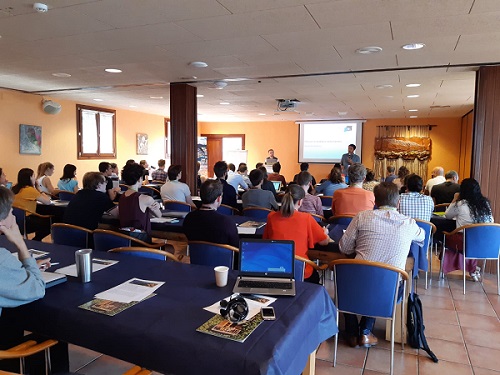
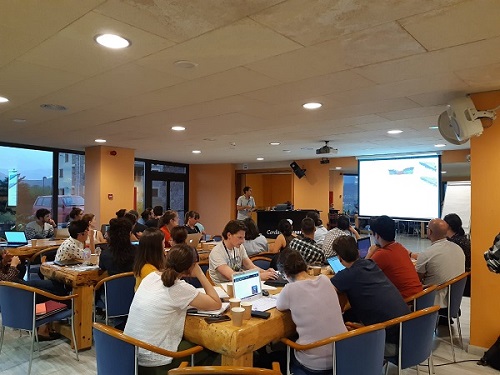 More than 60 people attended the “Mechanobiology of Cancer Summer School 2019” organised by IBEC as the center is in charge of coordinating the Mechano·contorl project. The summer school was held in Prullans, a tiny village located at the Catalan Pyrinees between 17 and 21 of September. The event was a great success both in participation and scientific level. The aim of the summer school was to provide training on mechanobiology, and specifically its application to breast cancer, and promote interactions between professionals of the field.
More than 60 people attended the “Mechanobiology of Cancer Summer School 2019” organised by IBEC as the center is in charge of coordinating the Mechano·contorl project. The summer school was held in Prullans, a tiny village located at the Catalan Pyrinees between 17 and 21 of September. The event was a great success both in participation and scientific level. The aim of the summer school was to provide training on mechanobiology, and specifically its application to breast cancer, and promote interactions between professionals of the field. 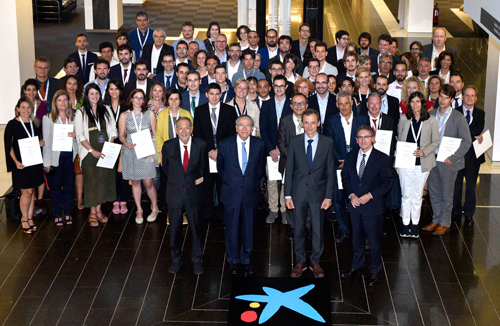
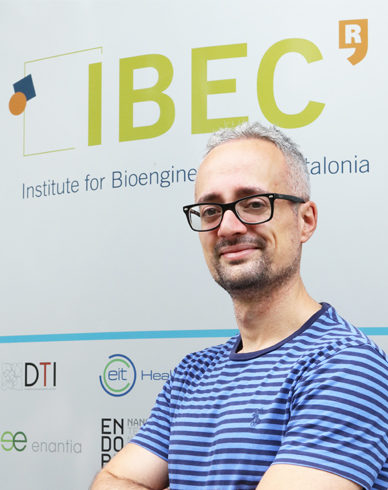
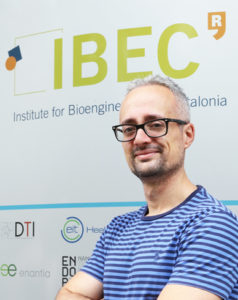
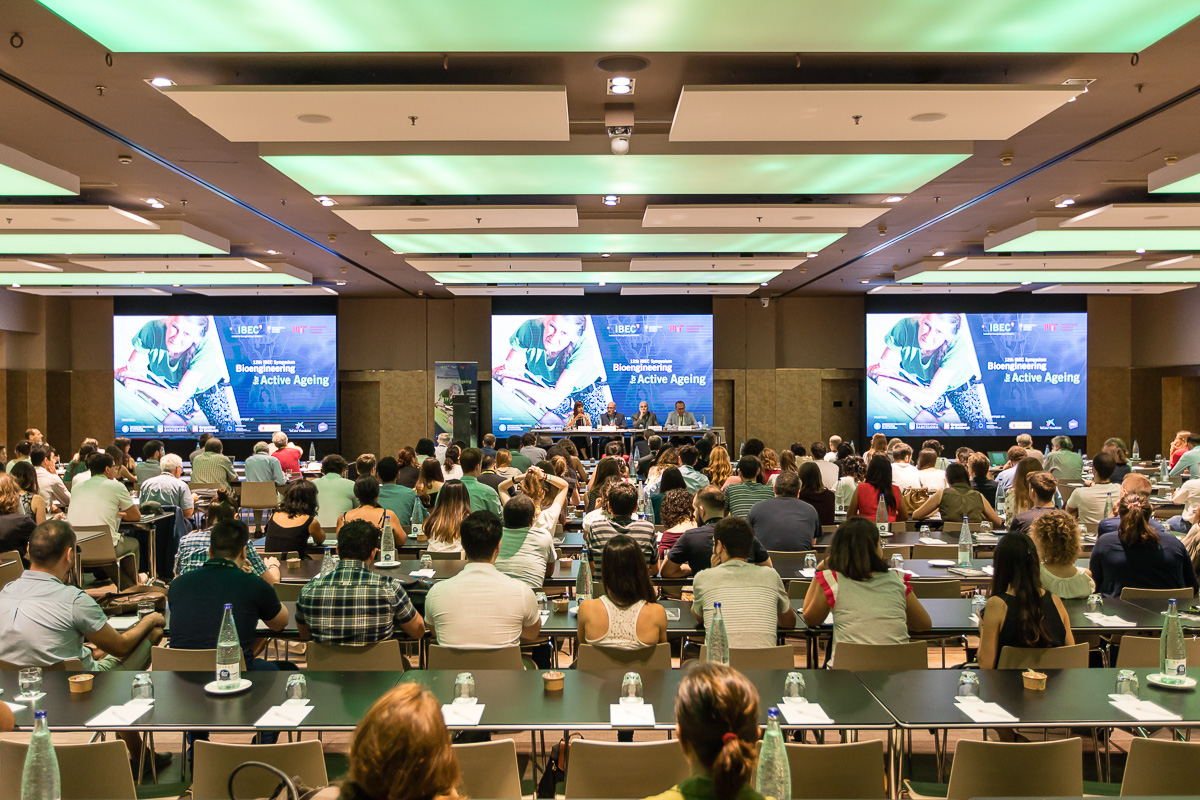
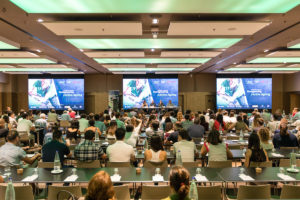 On Wednesday July 17th, the 12th IBEC Annual Symposium was held at the Hotel Catalonia Plaza in Barcelona. With the participation of more than 300 assistants and the exhibition of more than 102 scientific posters, this year, the event focused on Bioengineering for active aging – one of the three main research areas of IBEC- and had the participation of three MIT speakers (Massachusets Institute of Technology), among others.
On Wednesday July 17th, the 12th IBEC Annual Symposium was held at the Hotel Catalonia Plaza in Barcelona. With the participation of more than 300 assistants and the exhibition of more than 102 scientific posters, this year, the event focused on Bioengineering for active aging – one of the three main research areas of IBEC- and had the participation of three MIT speakers (Massachusets Institute of Technology), among others.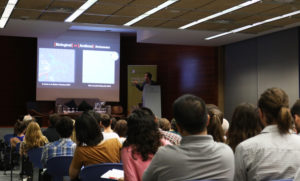 Three members of the ICMS have participated at the second IBEC-ICMS symposium, celebrated last 16th July at the Barcelona Science Park. The event aimed to identify synergies and potential for collaboration between IBEC groups and the researchers of the Institute for Complex Molecular Systems (ICMS), a research institute of the Eindhoven University of Technology (TU/e).
Three members of the ICMS have participated at the second IBEC-ICMS symposium, celebrated last 16th July at the Barcelona Science Park. The event aimed to identify synergies and potential for collaboration between IBEC groups and the researchers of the Institute for Complex Molecular Systems (ICMS), a research institute of the Eindhoven University of Technology (TU/e).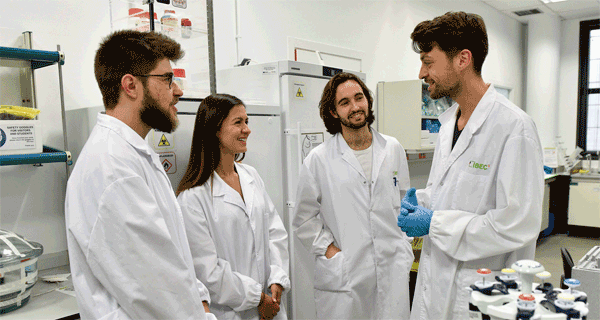
 This Friday took place at CosmoCaixa Barcelona the diploma award ceremony of the INPhINT PhD fellowships granted by Fundació bancaria “La Caixa”. The call received more than 1.100 applications and only 77 where selected for a total value of more than 9 million euros.
This Friday took place at CosmoCaixa Barcelona the diploma award ceremony of the INPhINT PhD fellowships granted by Fundació bancaria “La Caixa”. The call received more than 1.100 applications and only 77 where selected for a total value of more than 9 million euros. 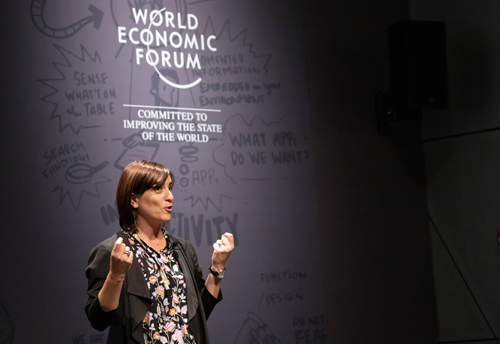 The researcher Núria Montserrat accompanies the president of the European Research Council (ERC) together with a selection of the best European researchers, at the Summer Davos annual Meeting, organised by the World Economic Forum (WEF). She has participated in several forums about how to work on more prosperous future and she explained how the research in organ regeneration that she is currently undertaking at IBEC can help in the fight against cancer.
The researcher Núria Montserrat accompanies the president of the European Research Council (ERC) together with a selection of the best European researchers, at the Summer Davos annual Meeting, organised by the World Economic Forum (WEF). She has participated in several forums about how to work on more prosperous future and she explained how the research in organ regeneration that she is currently undertaking at IBEC can help in the fight against cancer.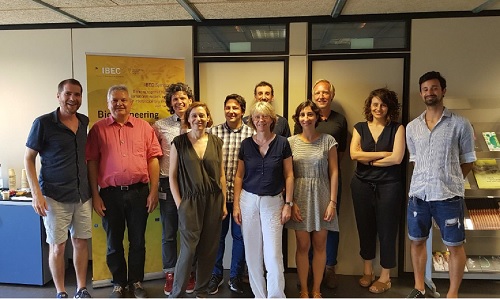
 A group of experts at Institute for Bioengineering of Catalonia (IBEC) lead the European project BRIGHTER (Bioprinting by light-sheet lithography: engineering complex tissues with high resolution at high speed), an initiative to develop an innovative and high resolution 3D bioprinting technology able to produce functional tissues.
A group of experts at Institute for Bioengineering of Catalonia (IBEC) lead the European project BRIGHTER (Bioprinting by light-sheet lithography: engineering complex tissues with high resolution at high speed), an initiative to develop an innovative and high resolution 3D bioprinting technology able to produce functional tissues.